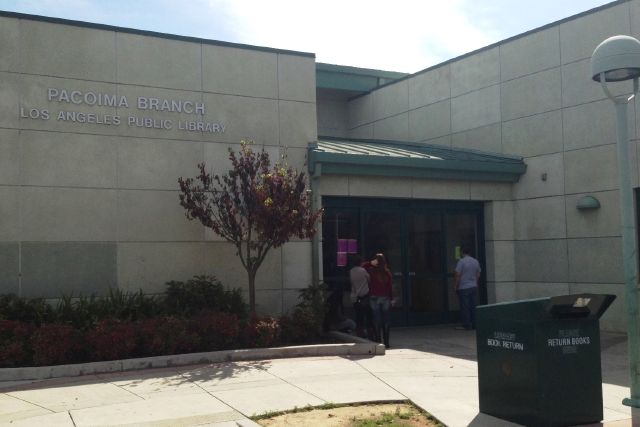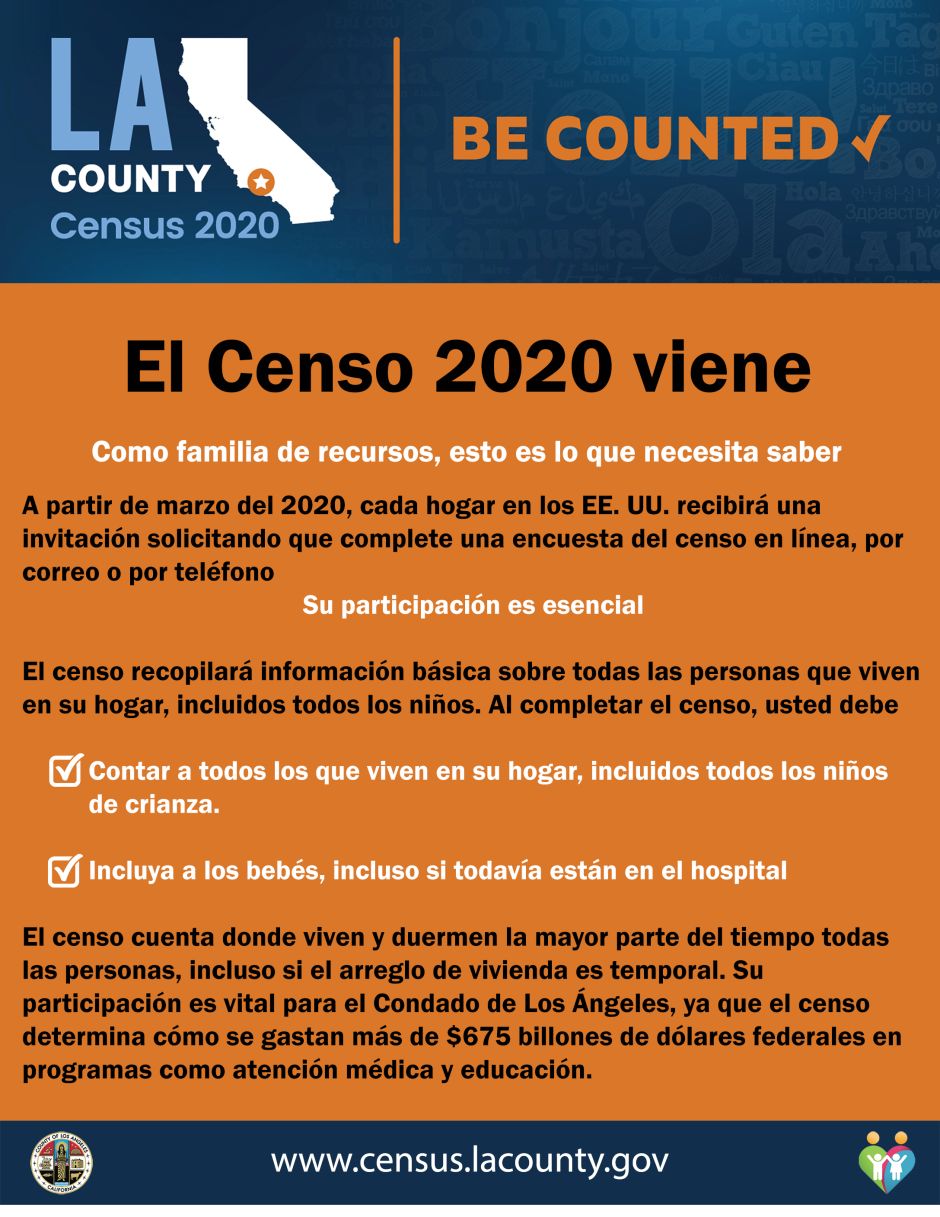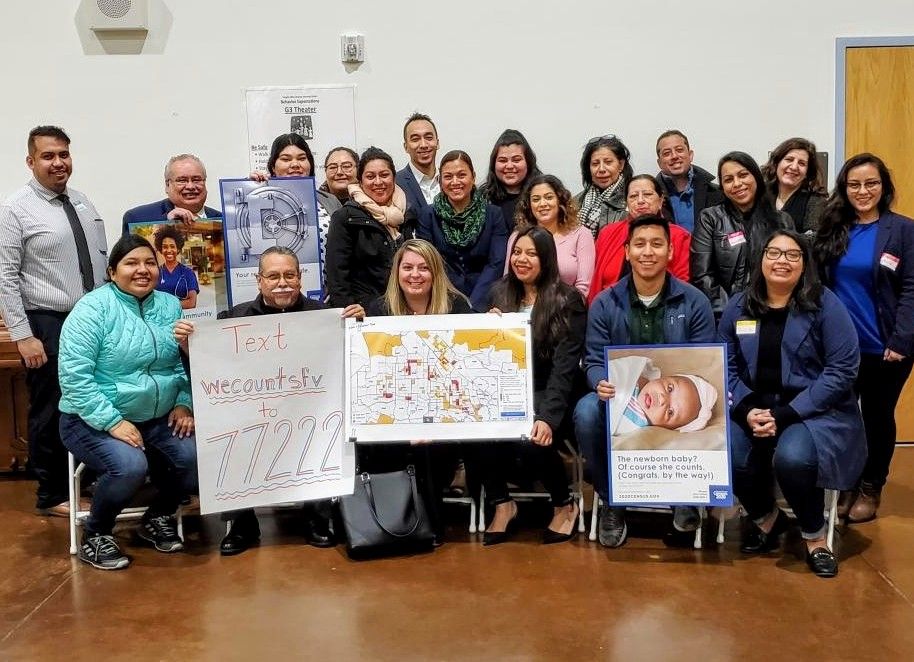Activists and authorities want to ensure that everyone, regardless of housing status, is counted
In the San Fernando Valley, efforts are already being redoubled to ensure that all its residents, regardless of their immigration or housing status, are counted in the next 2020 Census.
The California Public Policy Institute (IPPC) reported that Los Angeles County, which has a population of more than 10 million people, is considered one of the most difficult regions to count.
This is due, in large part, to local demographic characteristics such as ethnicity, immigration status, age and housing conditions.
The Pacoima area, in the San Fernando Valley (SFV), which has more than 75,000 inhabitants, leads the hard-to-count areas.
For this reason, community and political leaders fear that, if the inhabitants are not properly informed, they lose their corresponding benefits as well as representation in Congress.
To prevent this from happening, since 2019 the non-profit organization Pacoima Beautiful is working on the We Count LA (We Count in Los Angeles) campaign led by the California Community Foundation.
Dozens of volunteers, residents of the area, participate in the committee to inform their neighbors and friends what the census is about.
"We are aware that due to poverty, immigration, homelessness or several families living in a home there is fear of filling out the form," said Margarita López-Pelayo, organizer of Pacoima Beautiful.

Although these may be some reasons why some do not receive the questionnaire; However, there is also the possibility that the owner of the home will fill it out but only with his family information and discard the tenants.
"In this case the owner of the house can send one form and the tenants another," said López-Pelayo. "That's why we tell you that the census libraries or kiosks that will be available near your areas can go."
Stable homeless youth
López-Pelayo said that young people who live in foster homes or who do not have a stable home are recommended to be counted in the place where they are most of the time.
"They should not be afraid because the law states that the information that is put cannot be shared with any other entity," López-Pelayo explained.
“We have seen positive results from people when we inform them. Now we are precisely in the educational phase, ”said the activist.
The Department of Family and Child Services (DCFS) is also making sure that all children in foster homes are counted.
Juana Aguilera, a spokesman for DCFS, said children living in foster homes are counted where they are sleeping when the survey is completed.
"Therefore, foster parents are being informed to count all foster children living in their home, including newborns, even if they are still in the hospital," Aguilera said.
If children do not have parents, that is no obstacle to stop being counted.
Aguilera said that for this the child will be counted where they have placed either a relative, a foster home or short-term residential treatment programs (STRTP).
He added that to spread this, foster parents will receive information through attached brochures in English and Spanish, which will be included in their monthly February foster care payment.
The flyer also appears in the Fostering Parent Today magazine and information will be received by social workers and parenting agencies as well as through DCFS social networks.
"The flyers will also be published in the lobby of the DCFS regional offices and we will use internal communication mechanisms to inform all staff about the 2020 Census," the social worker said.

Without fear of being counted
The president of the Los Angeles Council and councilor representing the San Fernando Valley, Nury Martínez, said the San Fernando Valley Complete Count Committee is made up of several non-profit organizations committed to all people being counted, especially Latinos.
"They are meeting often to make sure we have all the equipment they will need to knock on the doors and fill out the census forms," Martinez said.
The councilwoman said the community does not trust the federal government and that it is understandable but she wants to ensure that her information is safe.
"For me the most important thing is to make them feel safe … We don't want the Latino community to think that the forms are going to be used against them by the Immigration Department (ICE)," said the councilor.
"We want to make them see that the Census is very important because it is the way federal funds reach our city and who is not counted is less money for schools, hospitals, social services."
The San Fernando Valley Count Committee will be holding its next volunteer meeting for the census on Tuesday, February 4 at 2:00 p.m. in Pacoima City Hall located at 13520 Van Nuys Blvd.
If you live in the San Fernando Valley and want to receive updates on the Census, send a message to the number 77222 with the phrase “we count sfv”.







